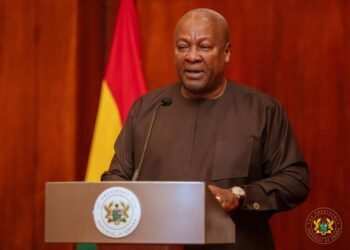- Nigerian parents spend above the Federal Government’s yearly budget of $750 million to educate their children in the UK.
- Nigerian students may have a hard time paying their way through schools abroad due to the pandemic
Thousands of Nigerian students abroad are stretched due to the corona-virus pandemic and the uncertainty on when it will end.But resorting to Nigeria’s deplorable educational sector is out of the question.
According to a report by Nairametrics, a financial resource company based in Nigeria, Should 11,000 Nigerian students in the UK pay the tuition of £10,000 each (at £1/N478.5179), about N52 billion would have been spent on tertiary education overseas, excluding other expenses like accommodation.
Here is the breakdown of the figures.
MBA/ International undergraduate students Fees per course
International undergraduate students pay a yearly £13,394 for classroom taught courses, and £15,034 and £24,169 respectively for laboratory and clinical courses. Postgraduate students pay £13,442, £15,638, and £20,956, respectively for the classroom, laboratory, and clinical-based courses. For MBA students, the tuition is £18,226 on the average.
Cost of living in the UK.
In addition to the tuition, the UK’s National Union of Students (NUS) noted that the average yearly cost of living outside of London for students is £12,056. To study in London, Nigerian students part with about £16,000 per year. For visa purposes, international students pay at least £1,265 for each month of stay while those outside London pay at least £1,000 per month to prove that they can cover the cost of living in the UK.
Fees for international students
Study in-uk.com notes that undergraduate fees for international students from outside the EU begin at around £10,000 per year. At the postgraduate level, they start at around £12,000, and if you wish to study medicine or MBA, you may have to pay about £32,000 per year.
Living expenses per year
The average living cost for international students is £12,180 per year. This can be much lower or higher, depending on where in the UK you wish to study. For example, in London, living expenses are considerably higher than the equivalent cost in a different city such as Liverpool or Birmingham.
Total average cost of studying in the UK
As of 2015, a student in the UK paid $35,710 on the average yearly (tuition and living expenses). According to one estimate, Nigerian parents spend above the Federal Government’s yearly budget of $750 million to educate their children in the UK.
Another estimate puts the total average cost of studying in the UK at £22,200 or $31,380 per year. Going by the 2017 estimates, Nigerian parents spent $423 million in the UK or N152 billion!
The Pandemic has put undue strain on their sponsors and the depreciation of the Naira has got them buckling on their knees.
The Federal Government and many states in the country have since reviewed their 2020 budgets. Worse still, the naira’s value has depreciated. As at Sunday, a dollar exchanged officially for N385.3777 and N440 at the black market. The pound was officially N478.5179 and N553 at the black market.
Should 11,000 Nigerian students in the UK pay the tuition of £10,000 each (at £1/N478.5179), about N52 billion would have been spent on tertiary education overseas, excluding other expenses like accommodation.
Will COVID-19 hinder the education of Nigerian students?
The United Kingdom (UK) Universities Minister, Michelle Donelan has promised that the coronavirus pandemic will not hinder the education of Nigerians studying abroad.
“As thousands of students from Nigeria would usually be considering their next steps, a global pandemic has caused huge disruptions to our daily lives. As the university minister, I want to make a promise to our students from Nigeria that this will not put a stop to your education. We stand by you and are doing everything to support you. Our universities are going above and beyond to keep students and staff safe.
Michelle Donelan





















